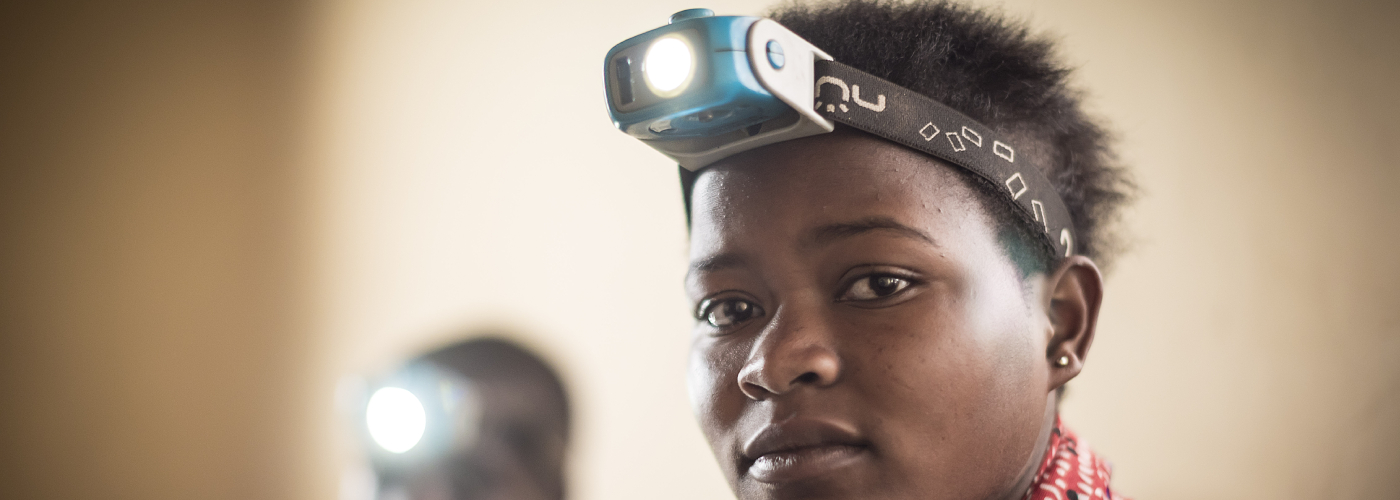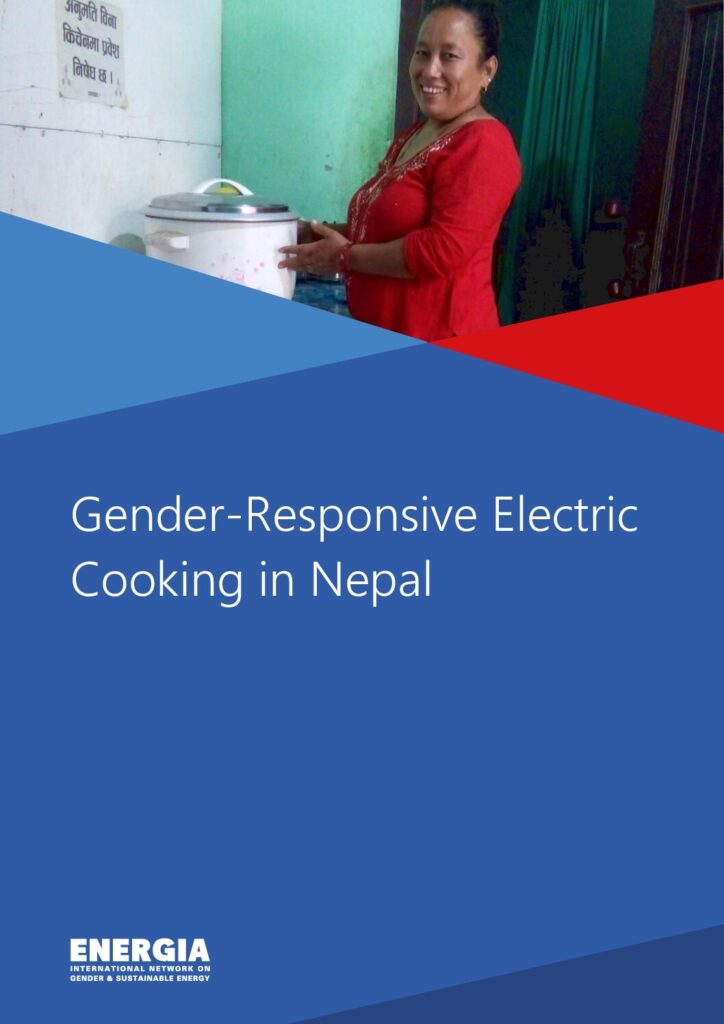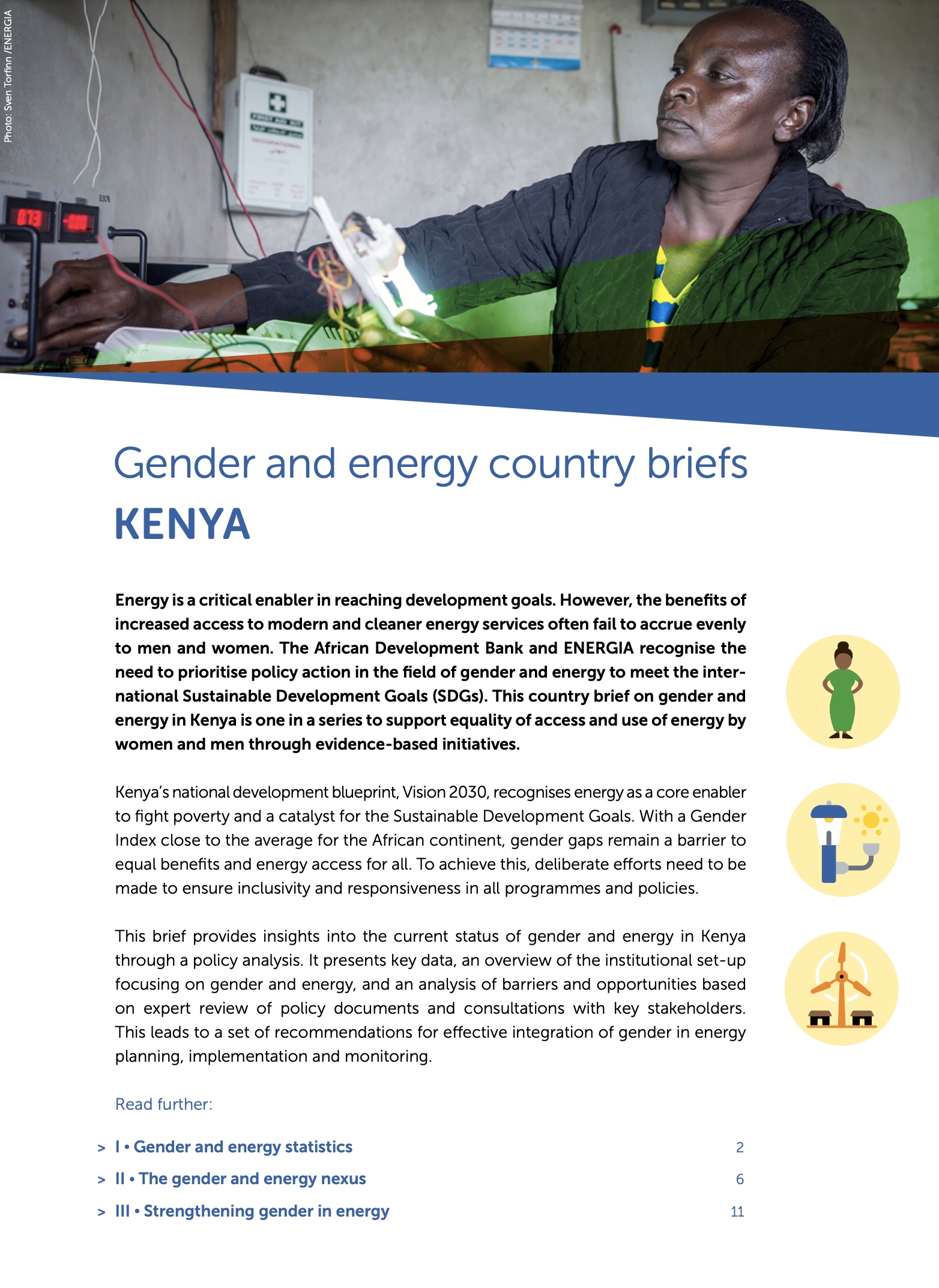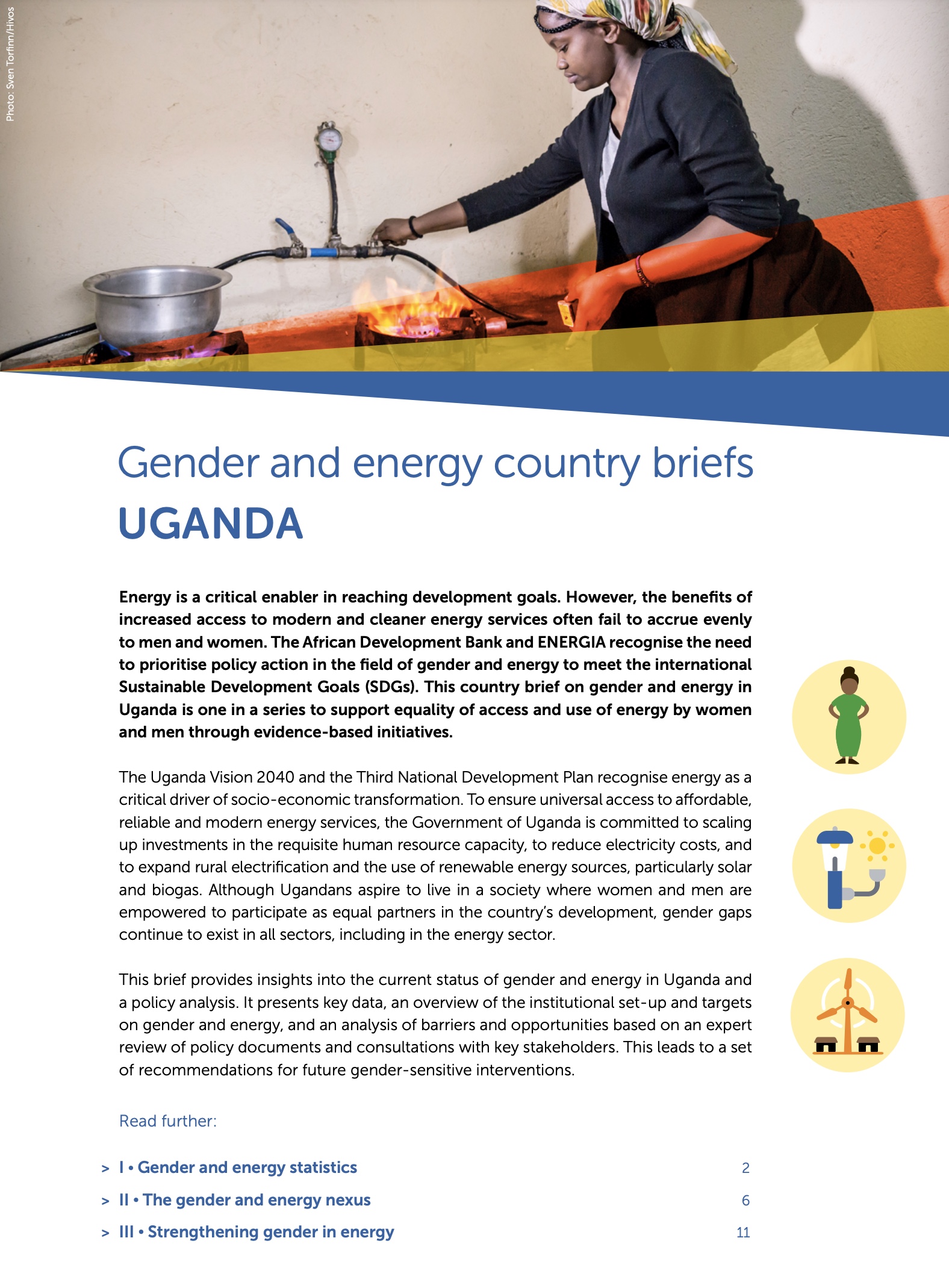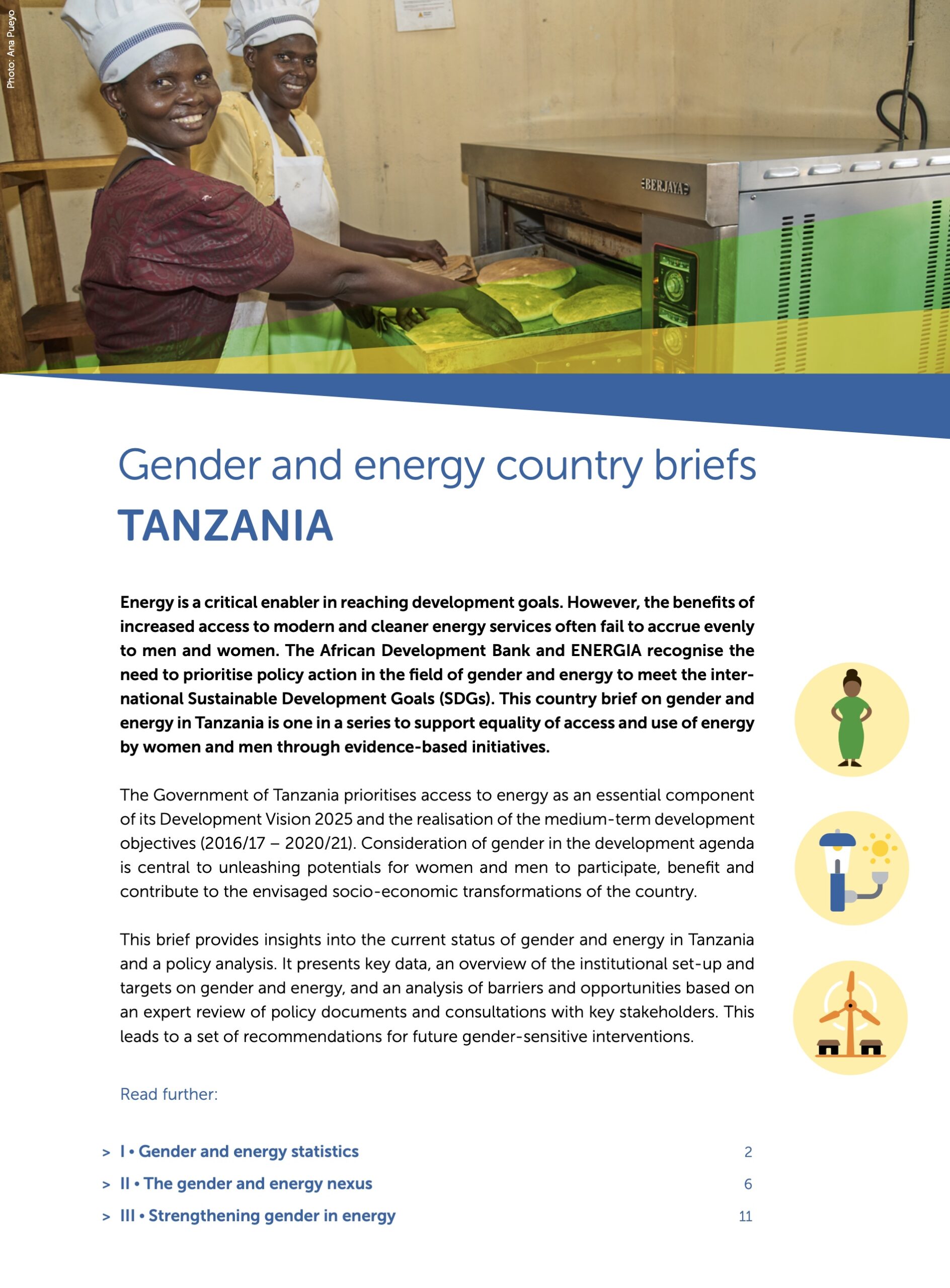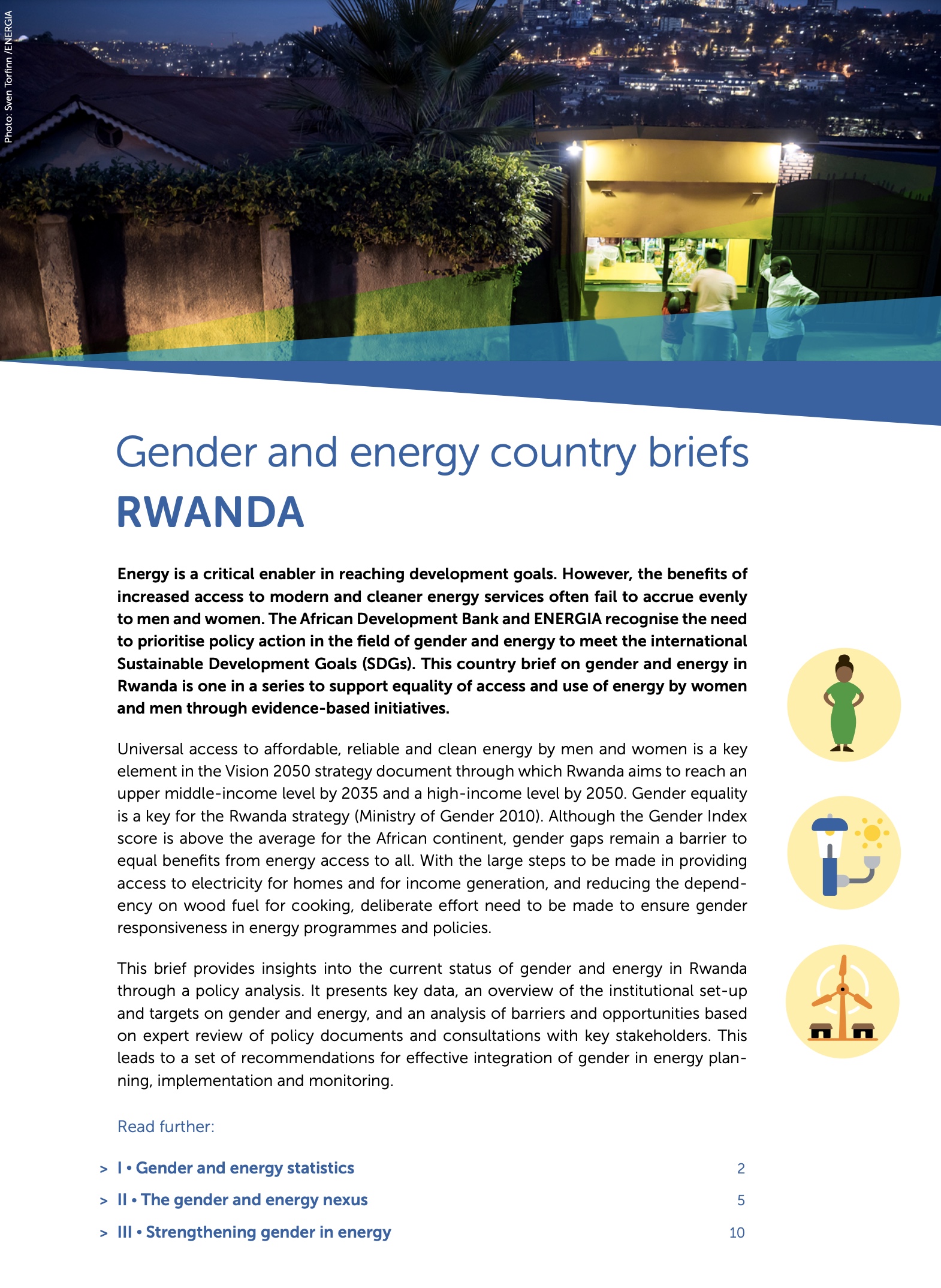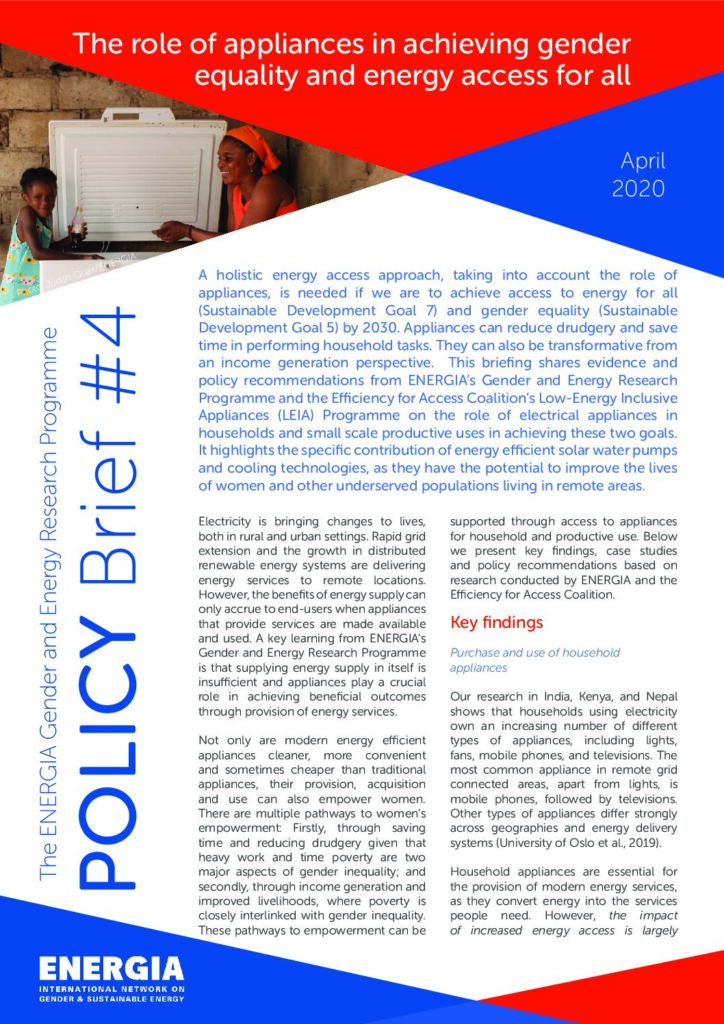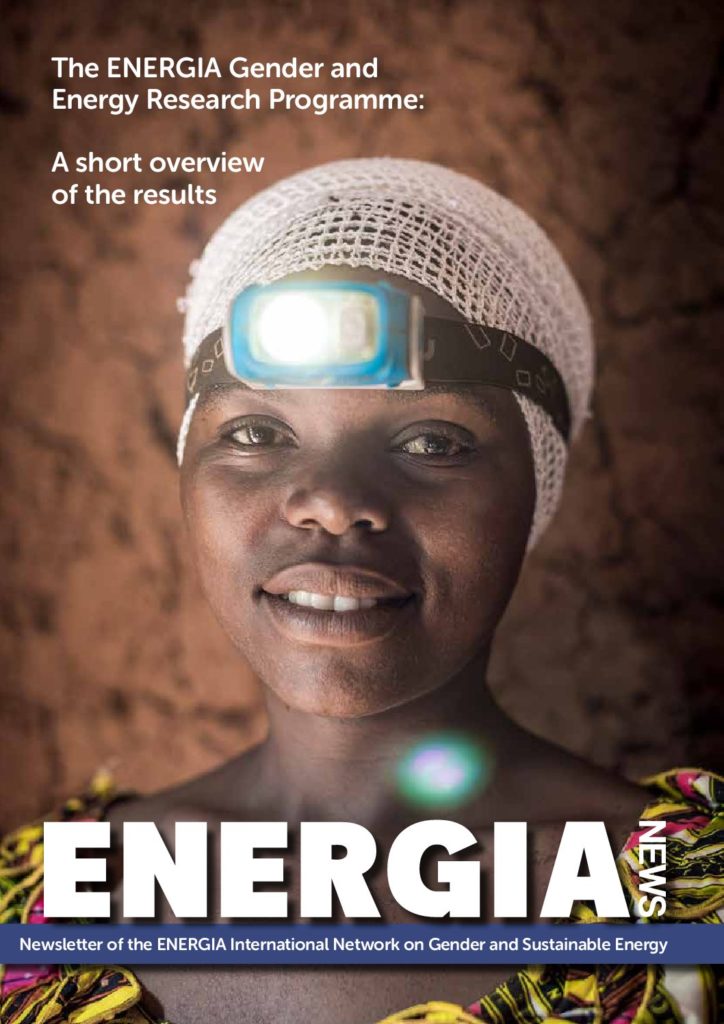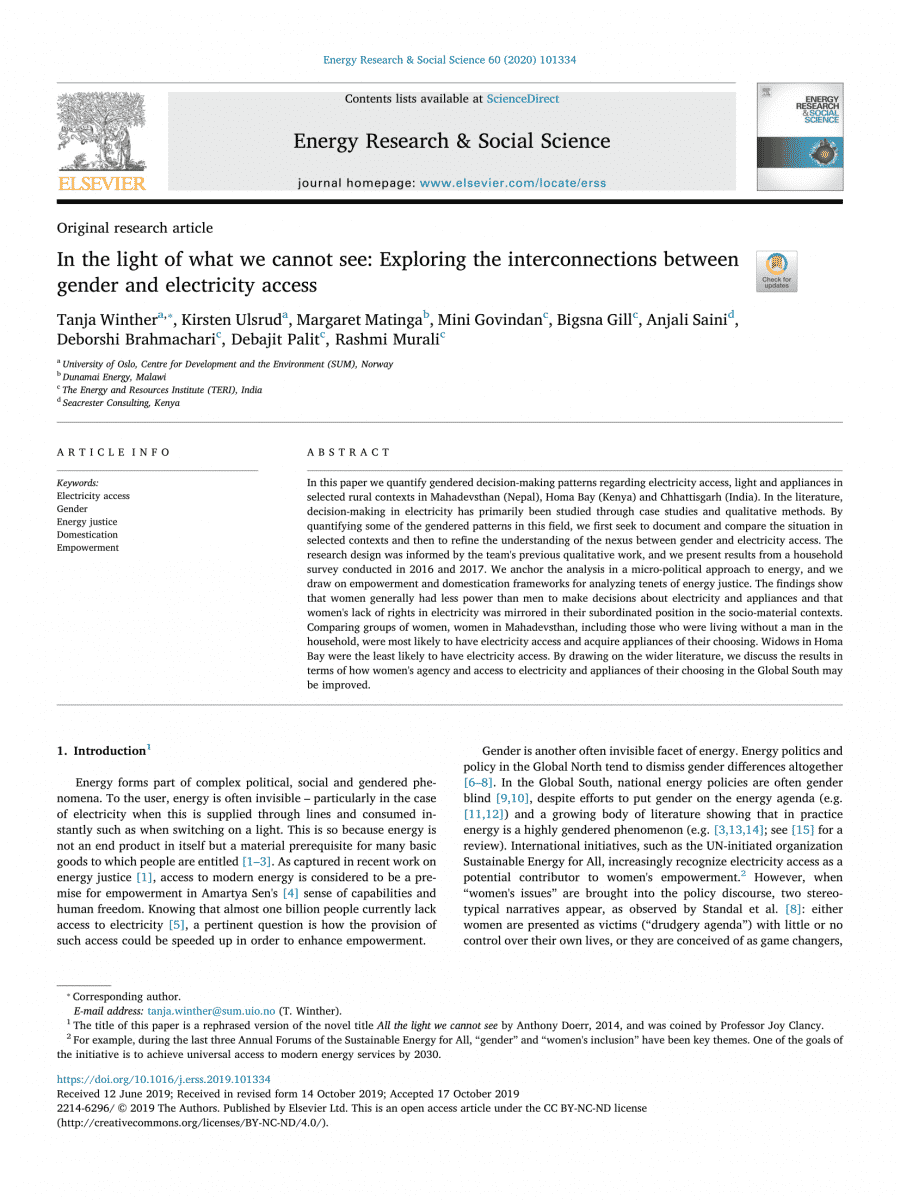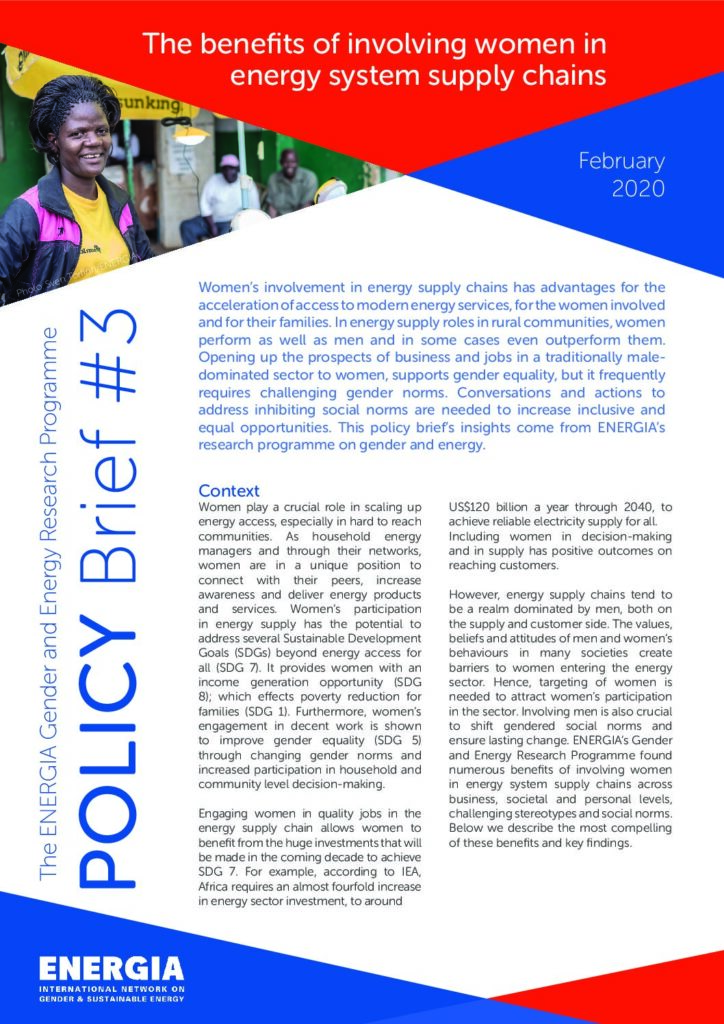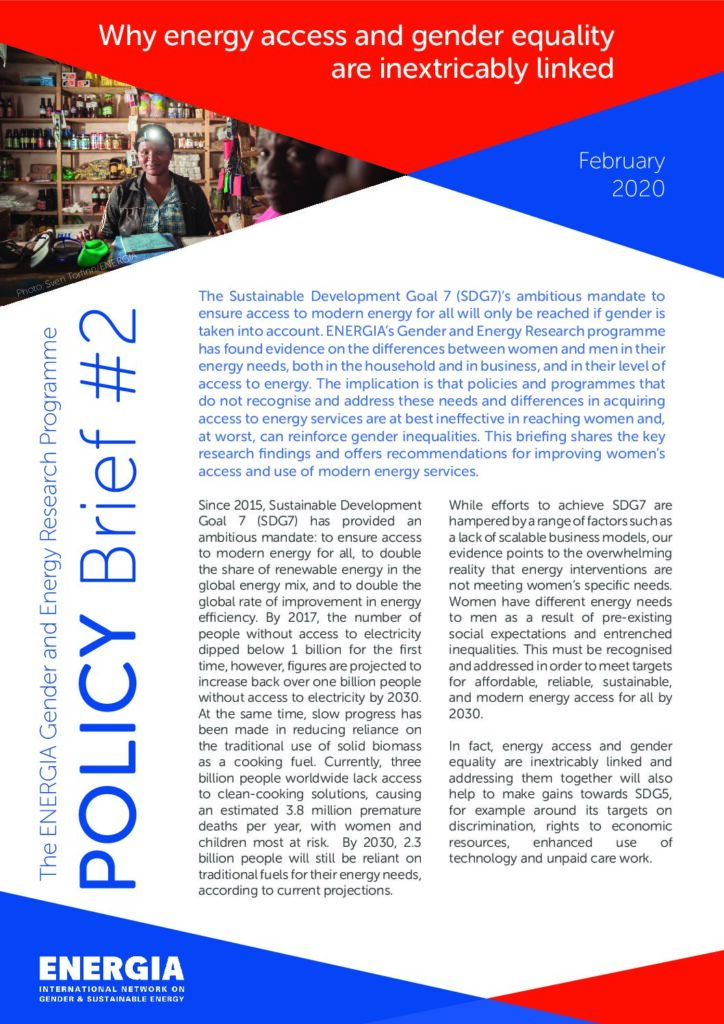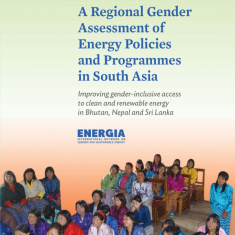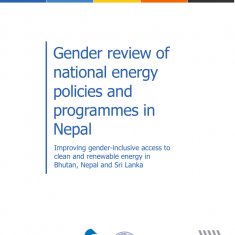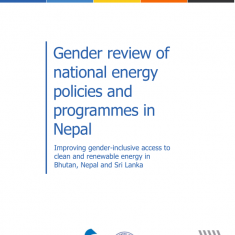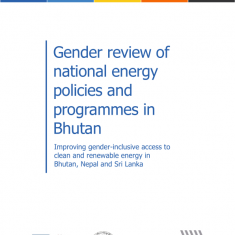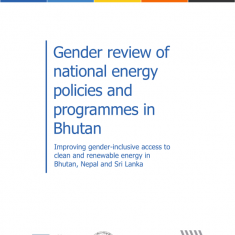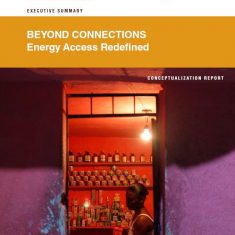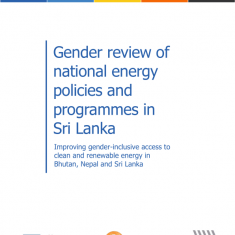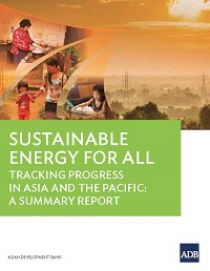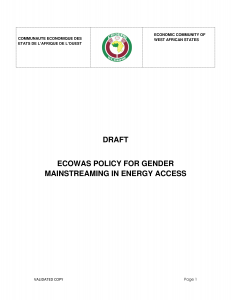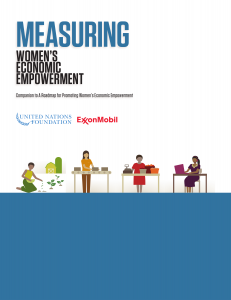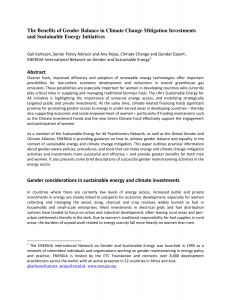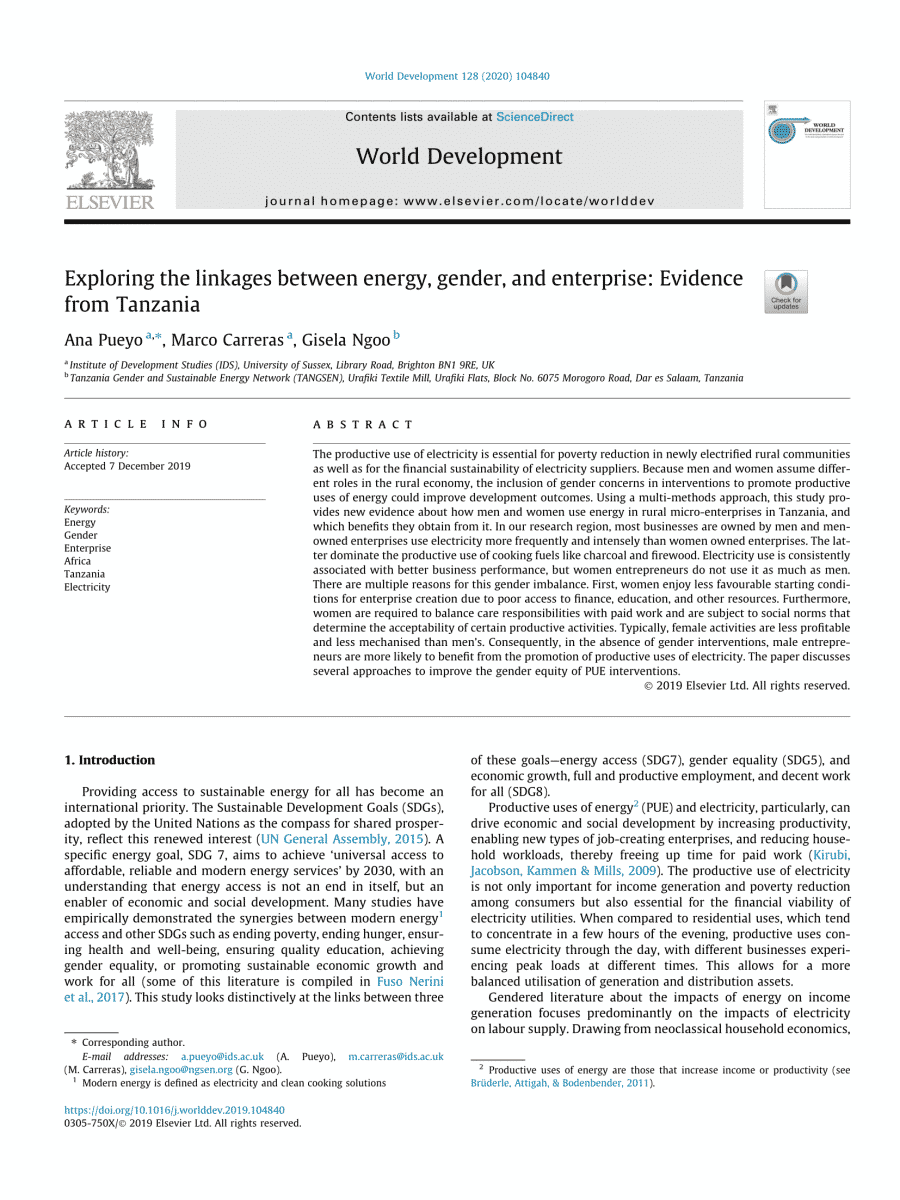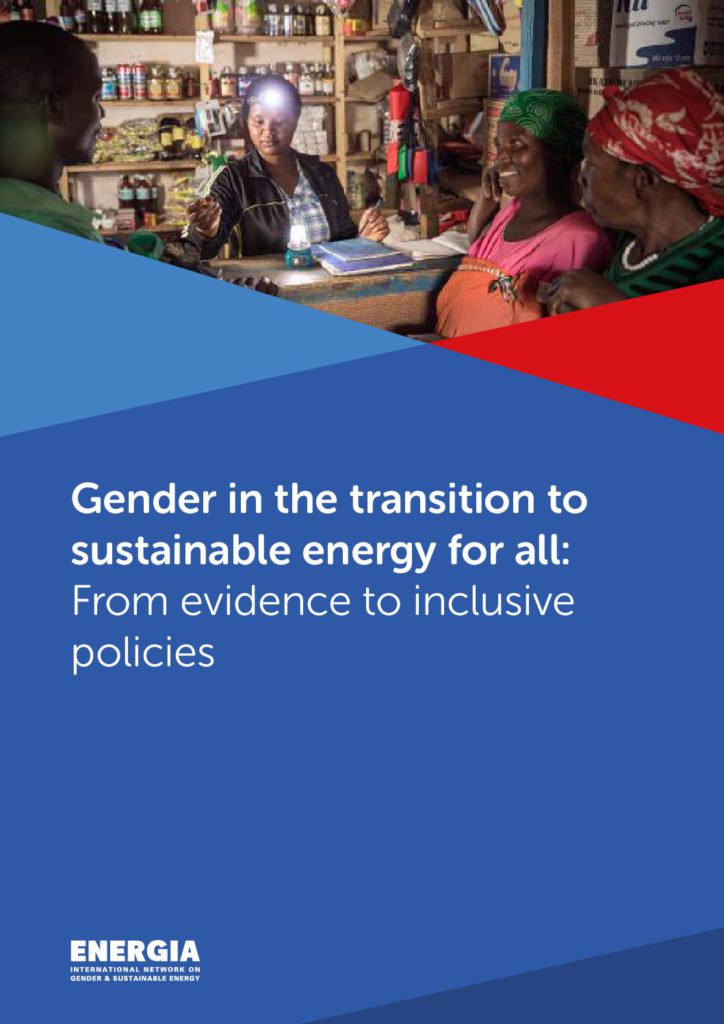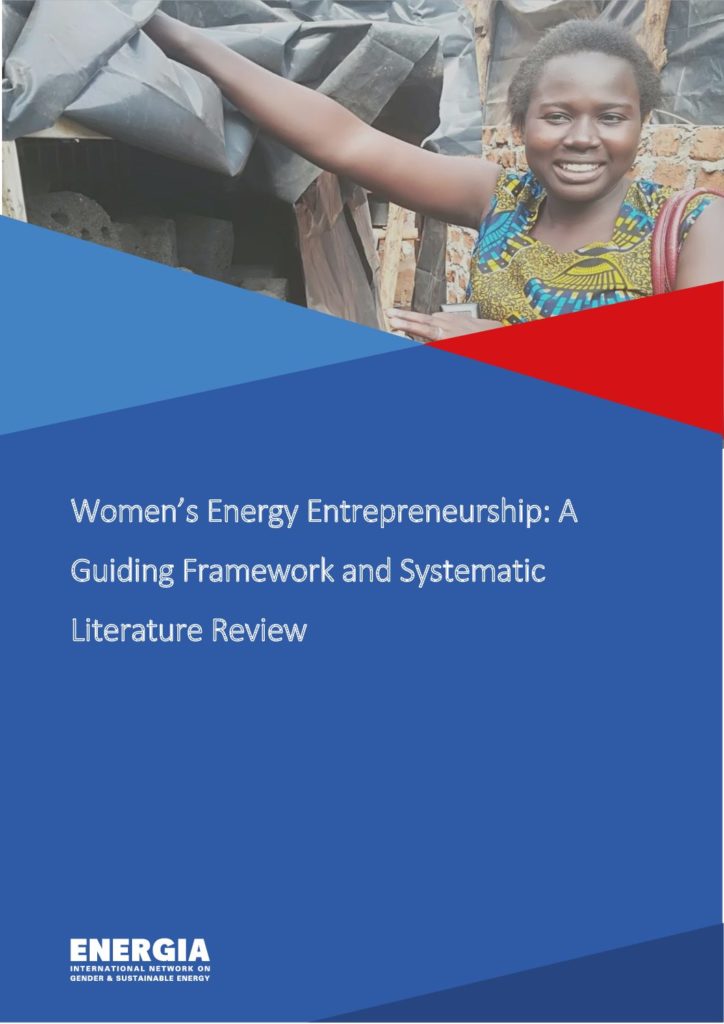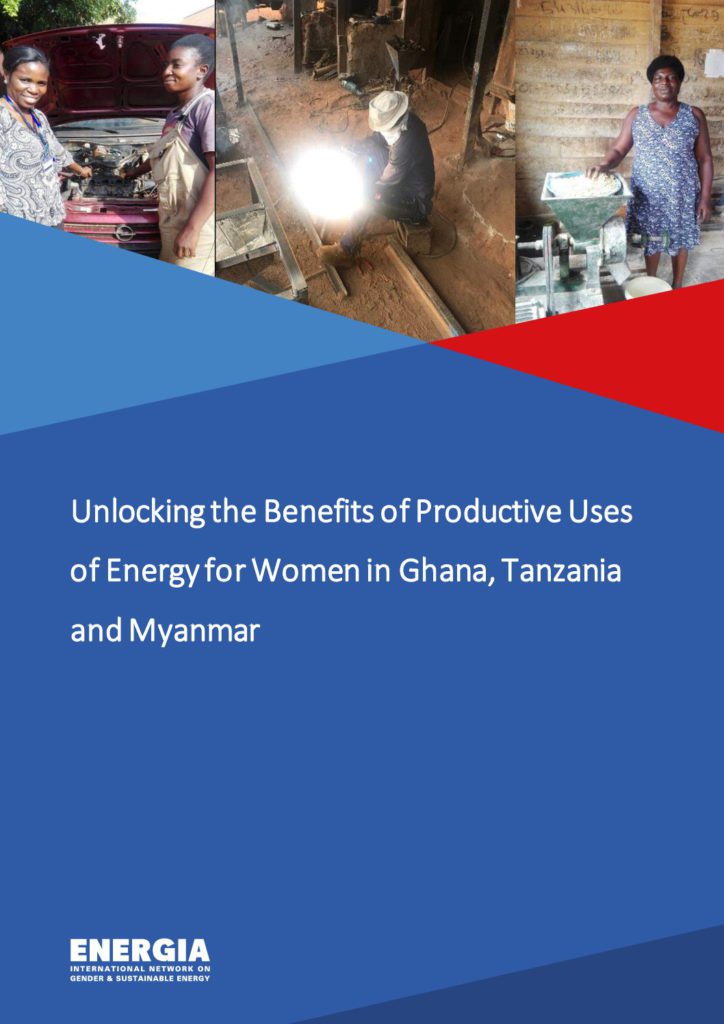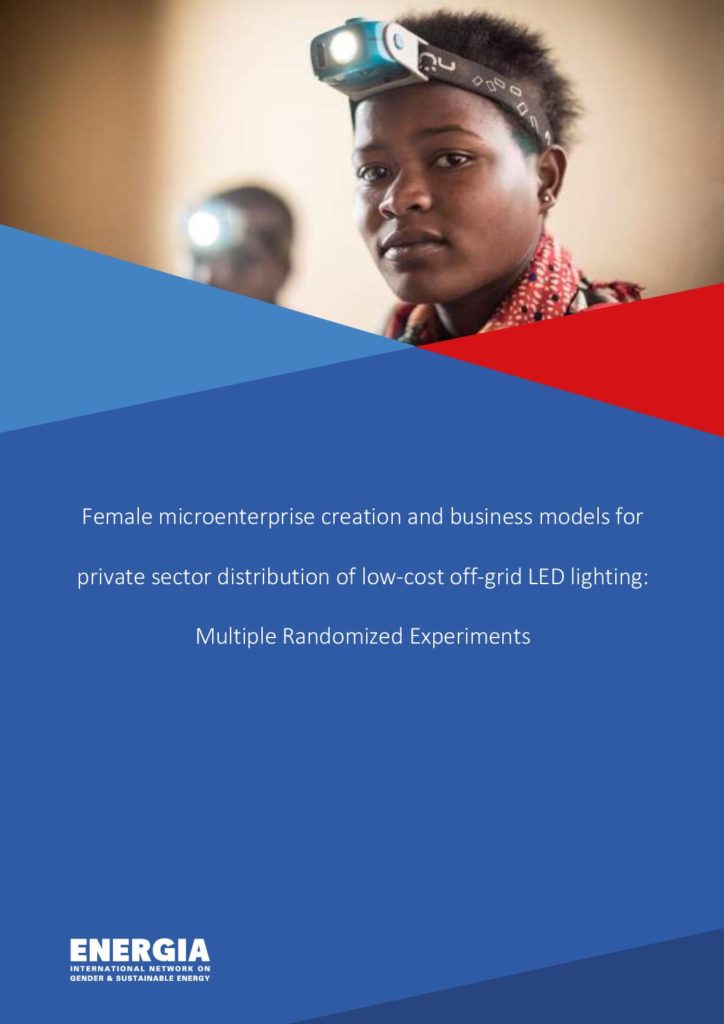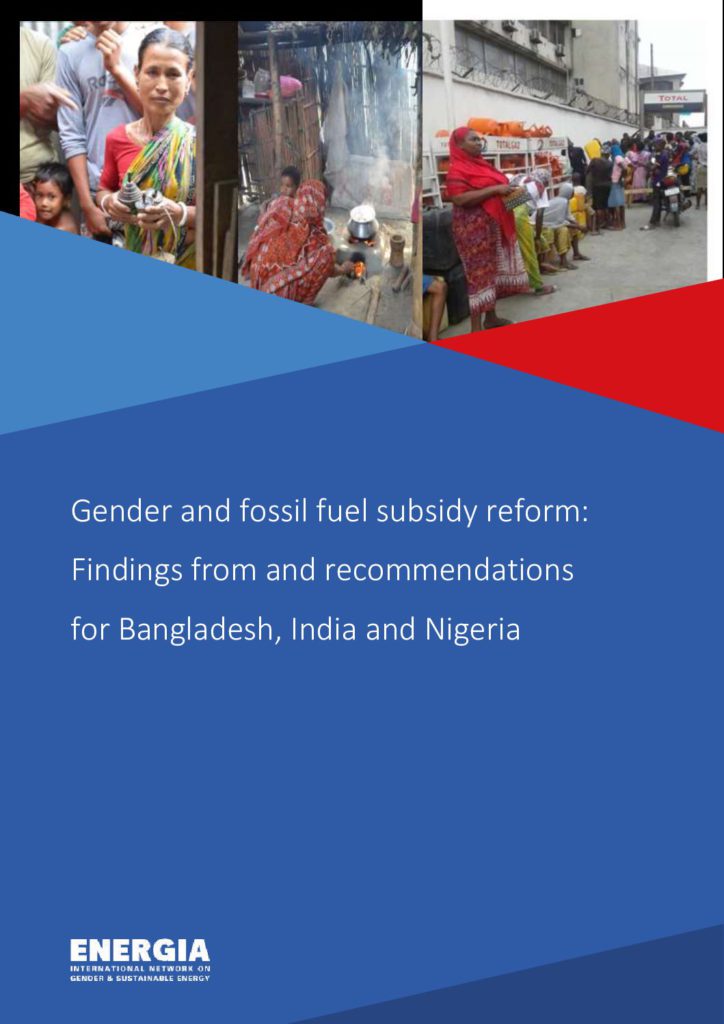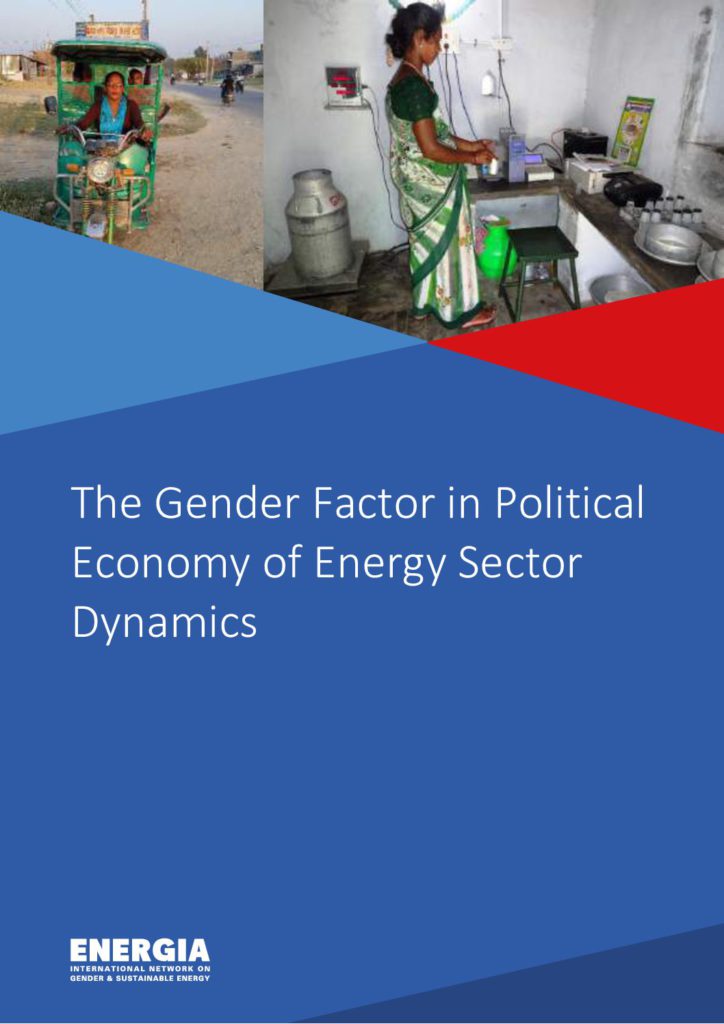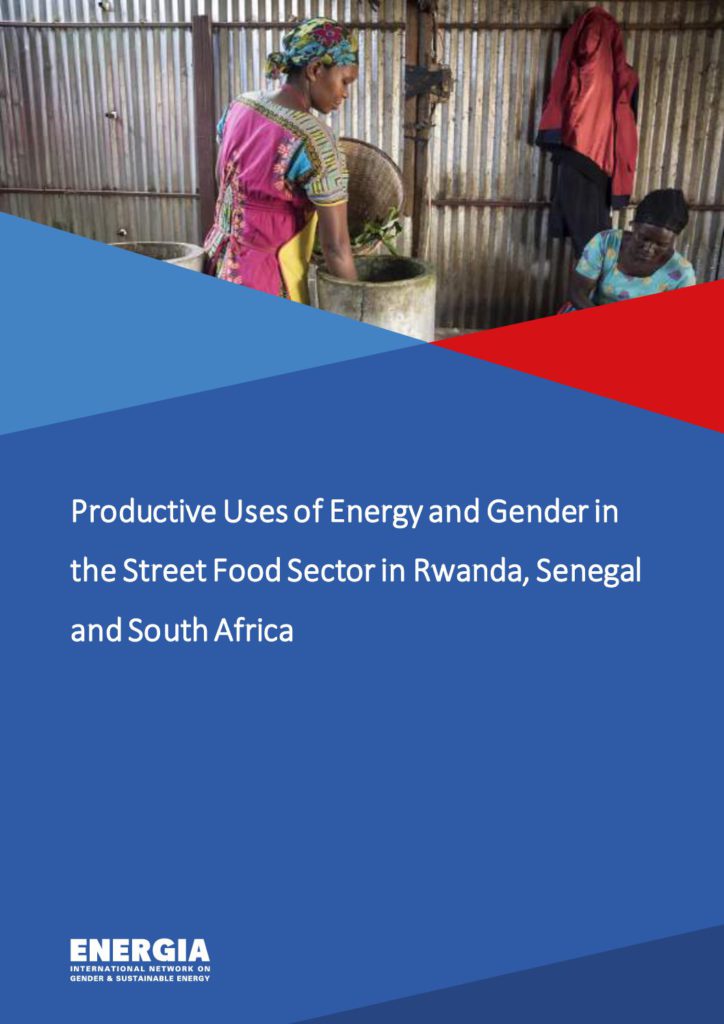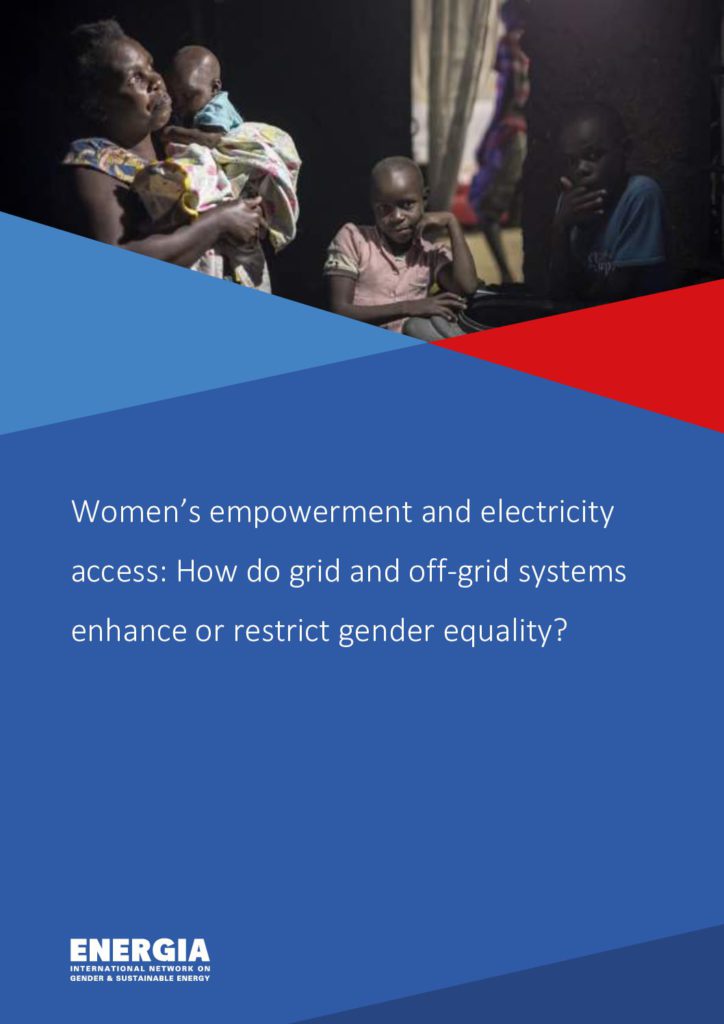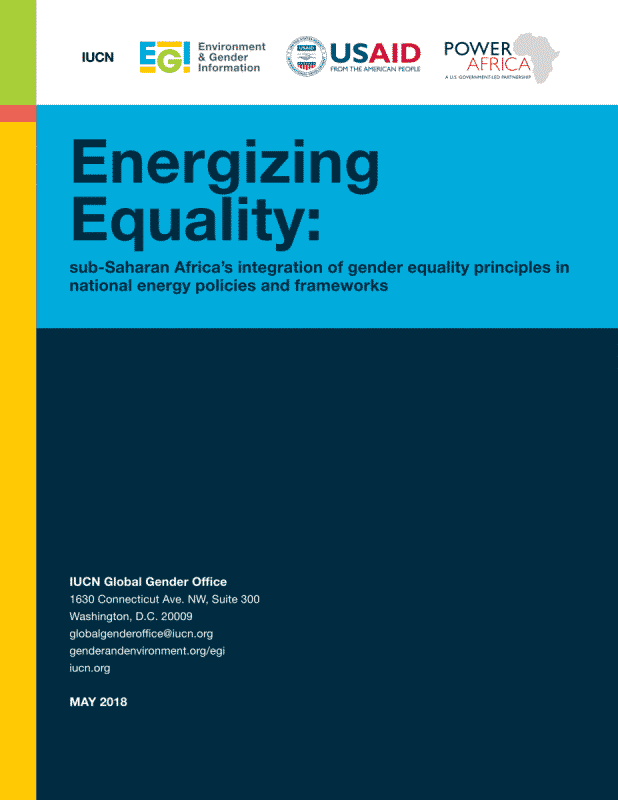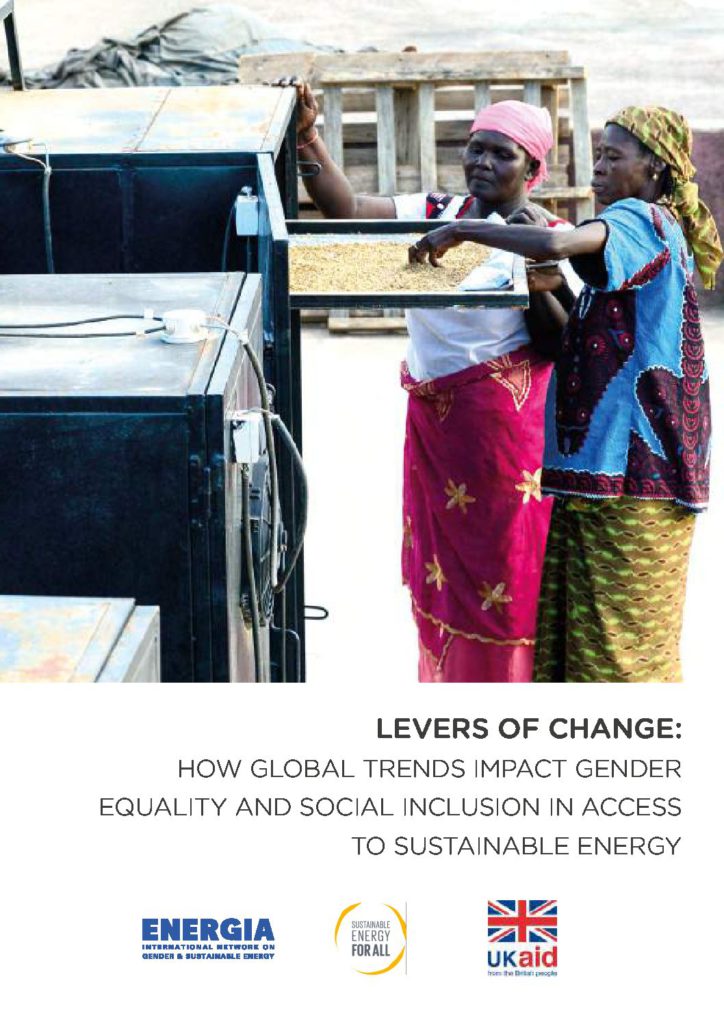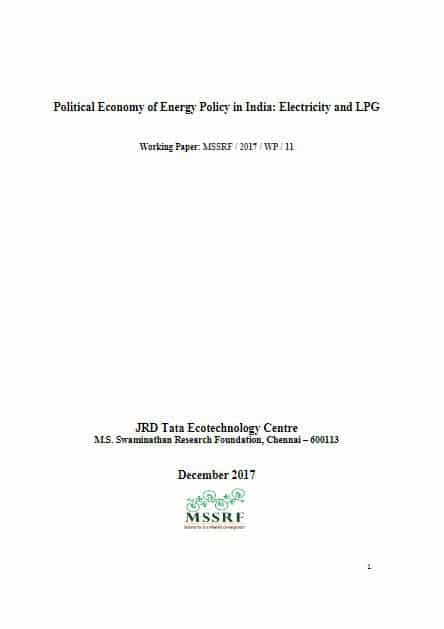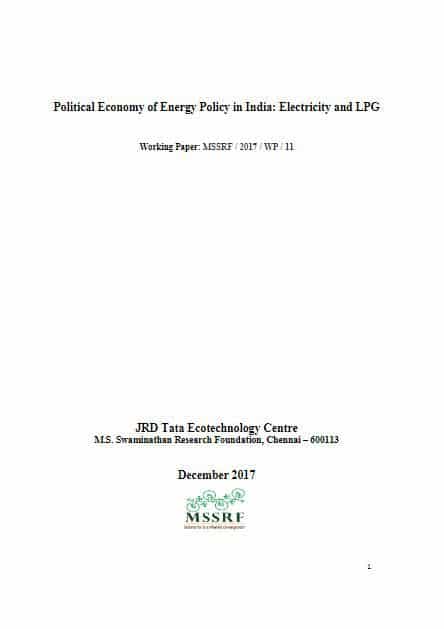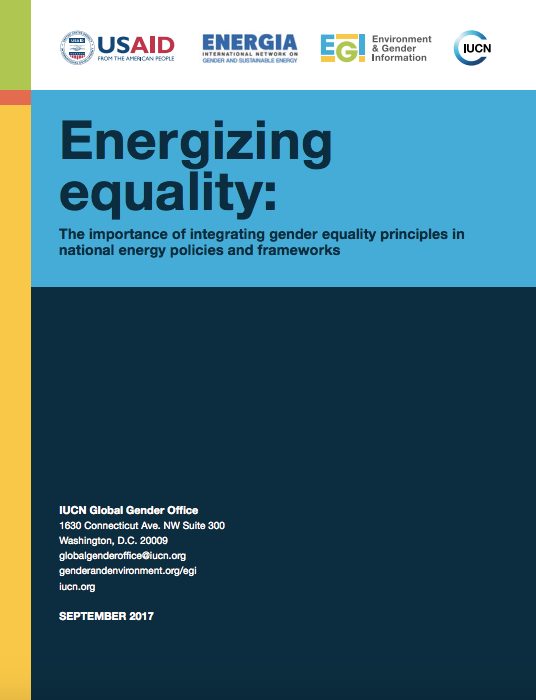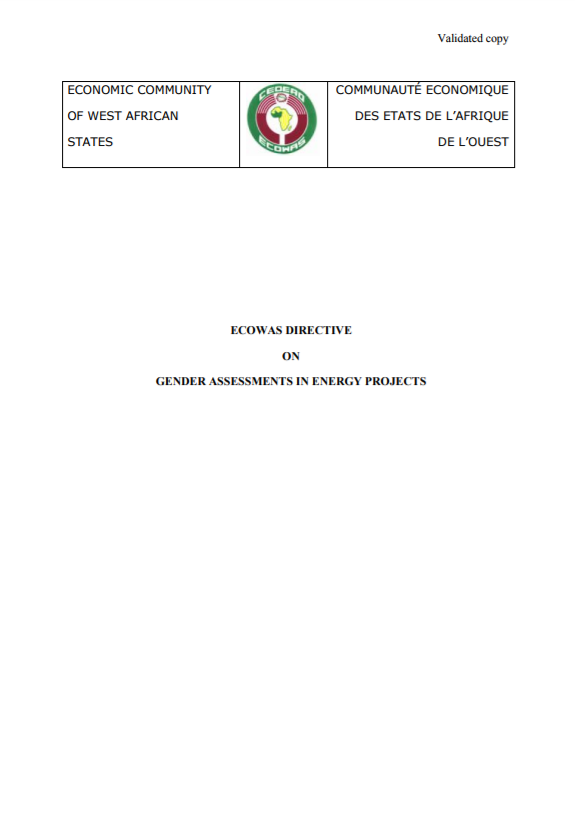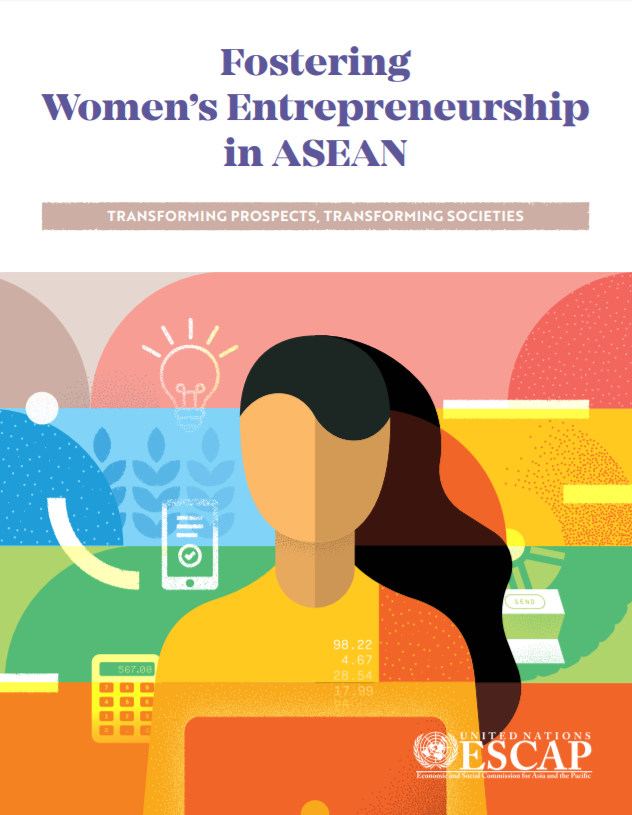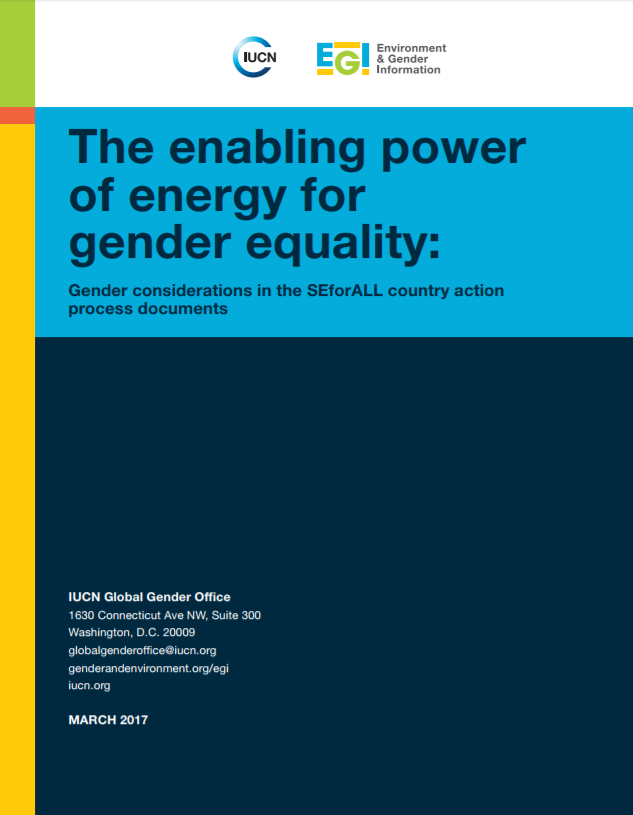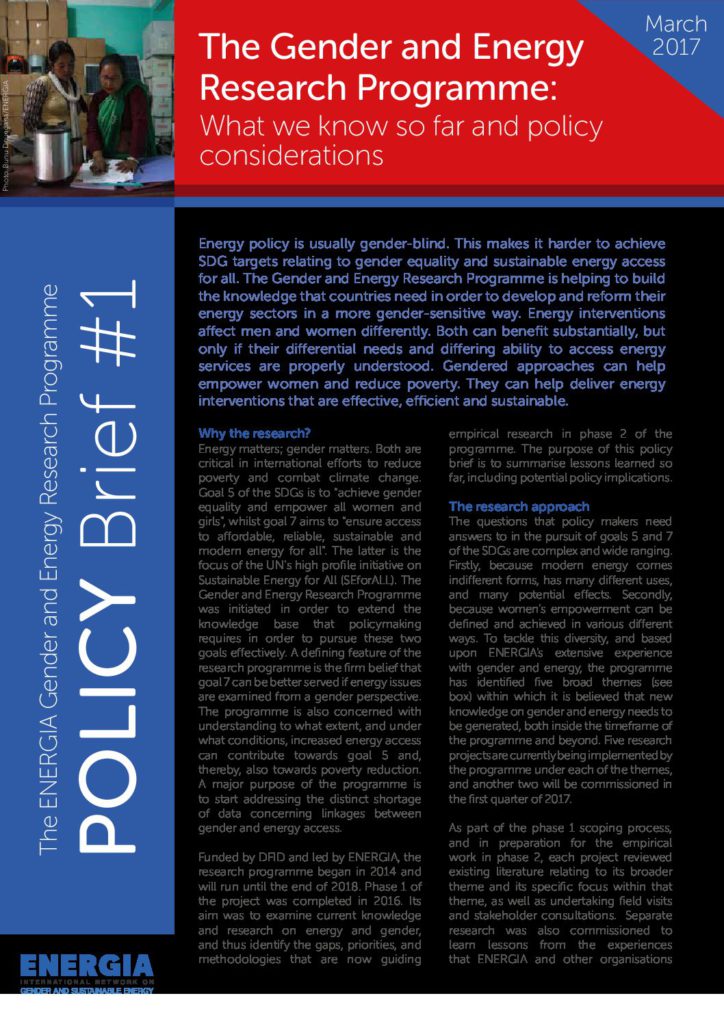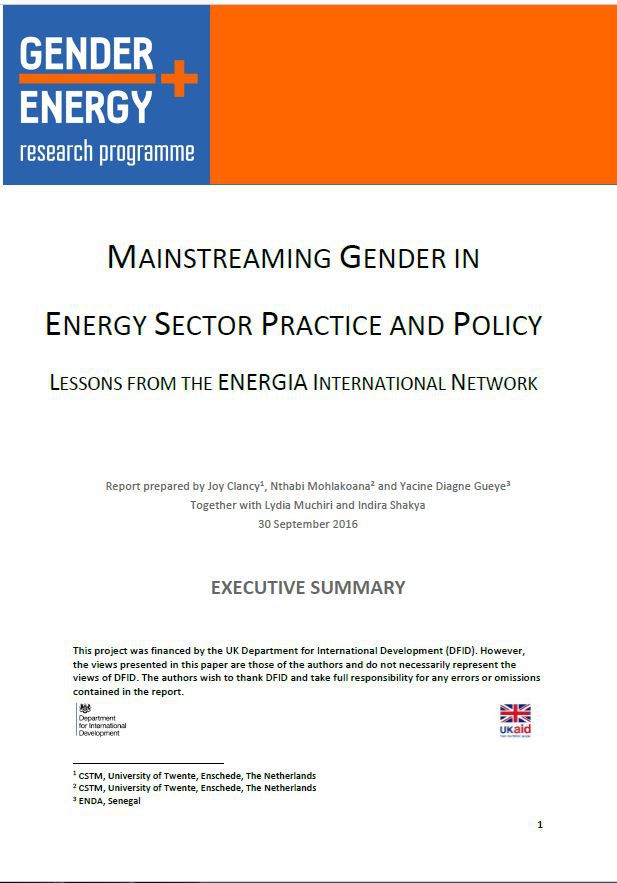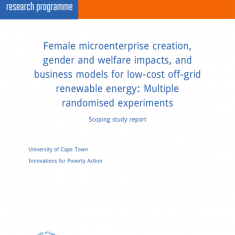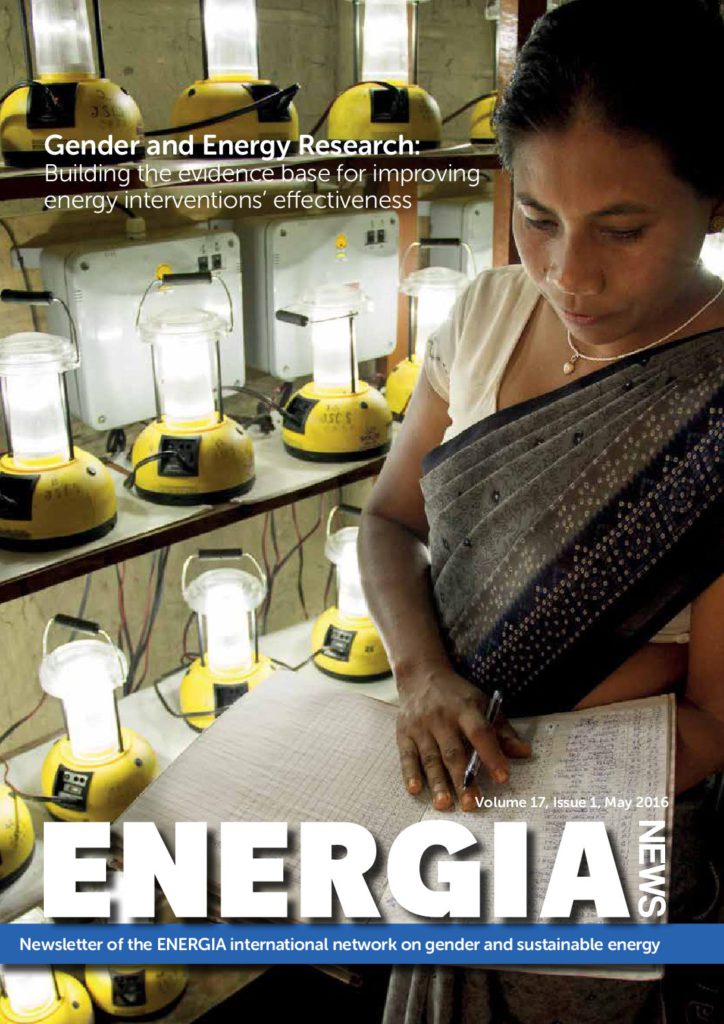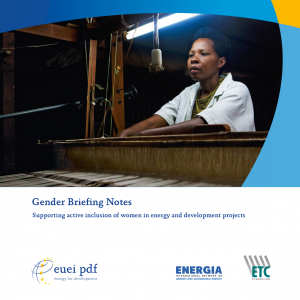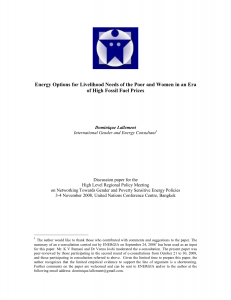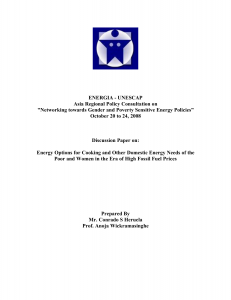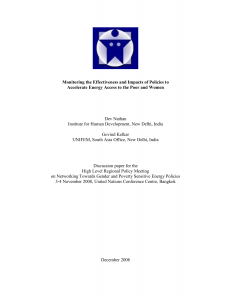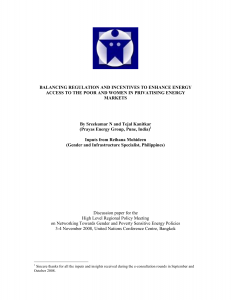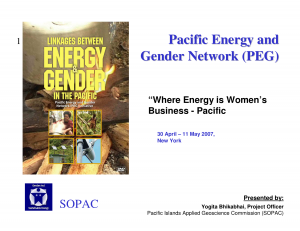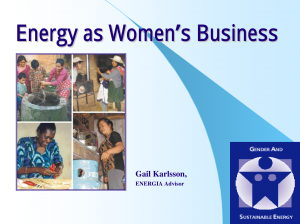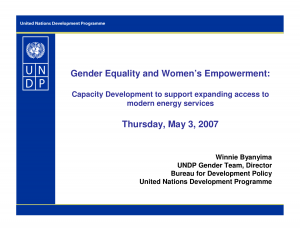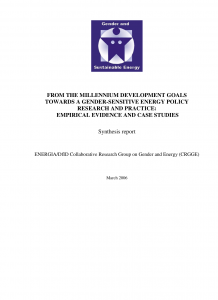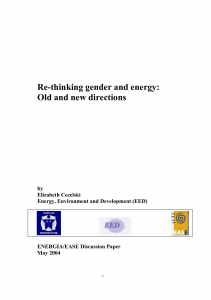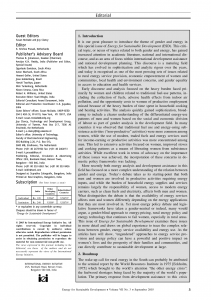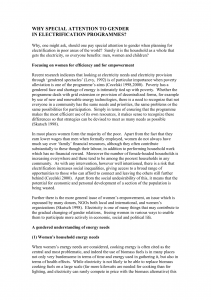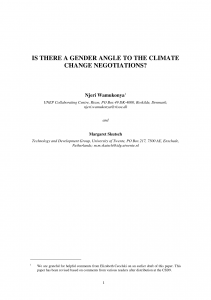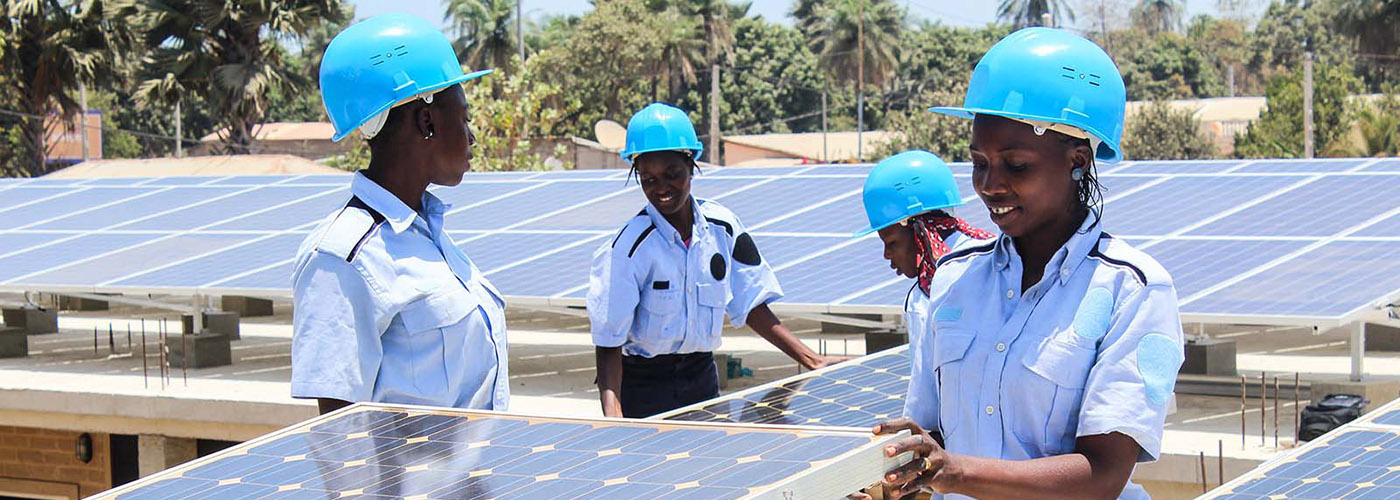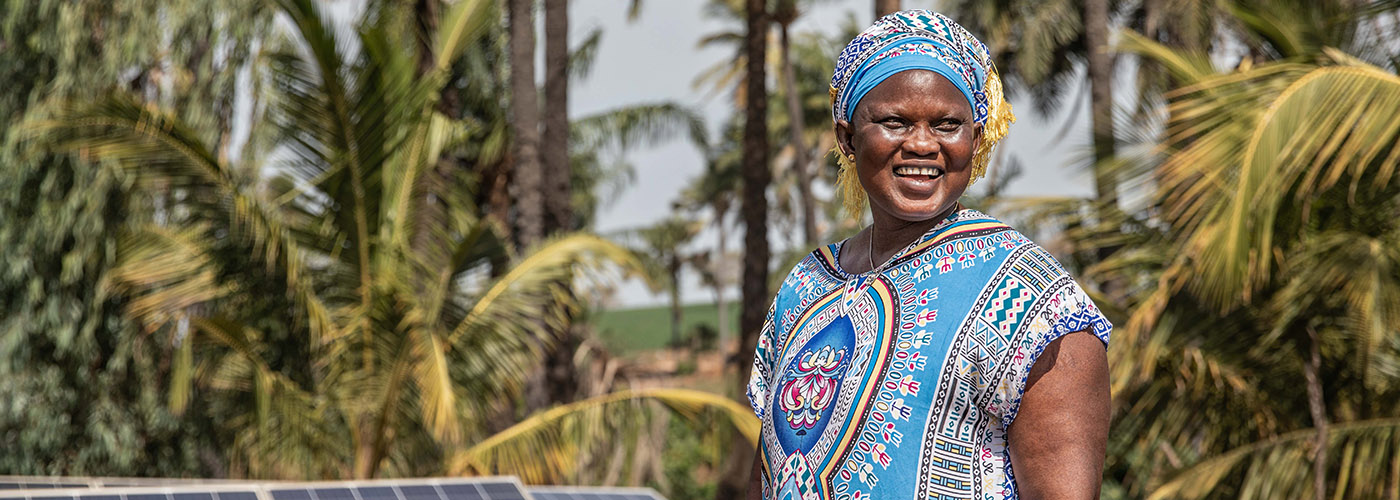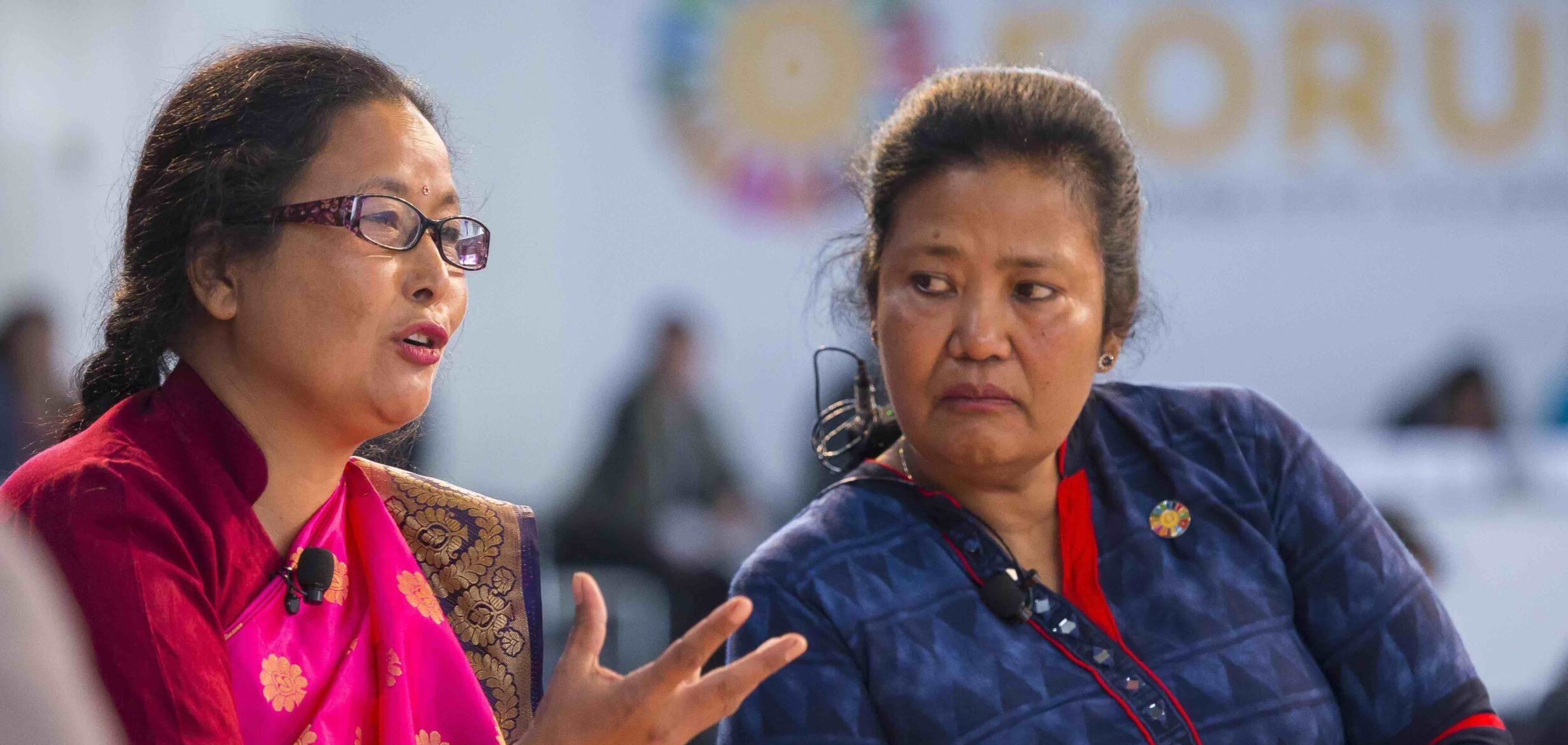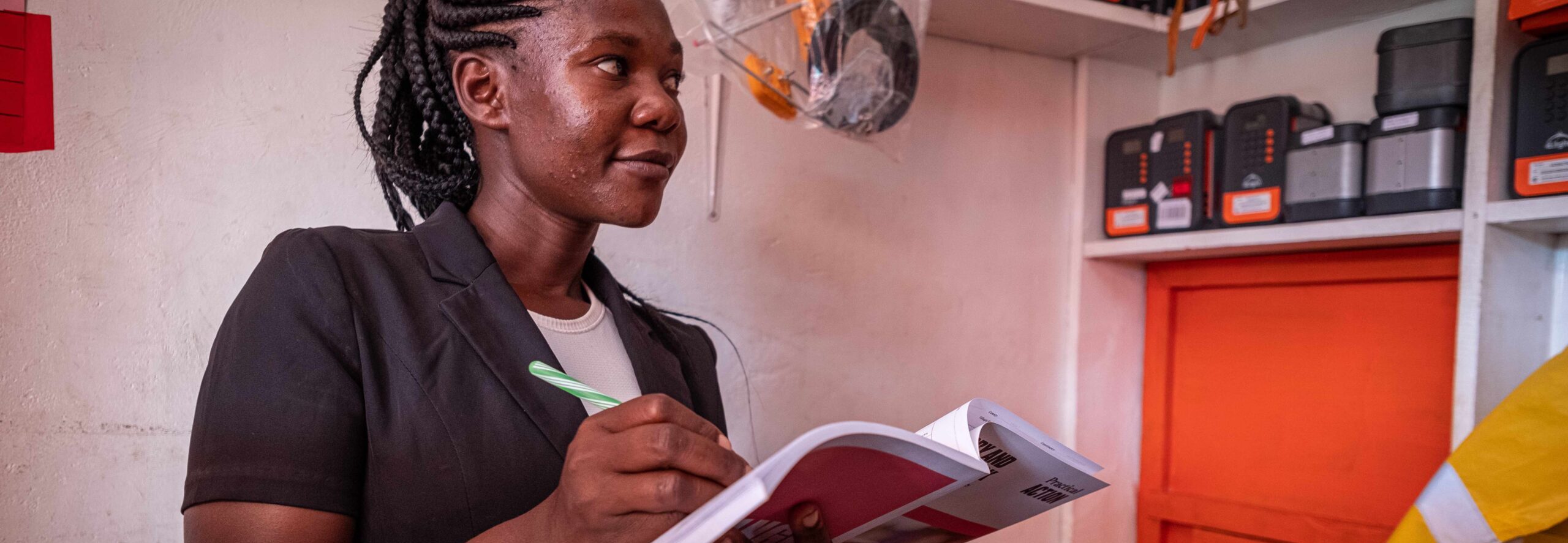Gender-Responsive Electric Cooking in Nepal
Transition to clean cooking is necessary for protecting the health and lives of the 2.7 billion people who suffer from the health and environmental impacts of existing cooking practices. As cooking is typically a task that women engage in, understanding the barriers to and opportunities of a transition to electric cooking from a woman’s perspective…
Gender and energy country brief – Kenya
Energy is a critical enabler in reaching development goals. However, the benefits of increased access to modern and cleaner energy services often fail to accrue evenly to men and women. The African Development Bank and ENERGIA recognise the need to prioritise policy action in the field of gender and energy to meet the inter-national Sustainable Development…
Gender and energy country briefs – Uganda
Energy is a critical enabler in reaching development goals. However, the benefits of increased access to modern and cleaner energy services often fail to accrue evenly to men and women. The African Development Bank and ENERGIA recognise the need to prioritise policy action in the field of gender and energy to meet the international Sustainable…
Gender and energy country briefs – Tanzania
Energy is a critical enabler in reaching development goals. However, the benefits of increased access to modern and cleaner energy services often fail to accrue evenly to men and women. The African Development Bank and ENERGIA recognise the need to prioritise policy action in the field of gender and energy to meet the international Sustainable…
Gender and energy country briefs – Rwanda
Energy is a critical enabler in reaching development goals. However, the benefits of increased access to modern and cleaner energy services often fail to accrue evenly to men and women. The African Development Bank and ENERGIA recognise the need to prioritise policy action in the field of gender and energy to meet the international Sustainable…
Policy Brief: The role of appliances in achieving gender equality and energy access for all
A holistic energy access approach, taking into account the role of appliances, is needed if we are to achieve access to energy for all (Sustainable Development Goal 7) and gender equality (Sustainable Development Goal 5) by 2030. Appliances can reduce drudgery and save time in performing household tasks. They can also be transformative from an…
ENERGIA News – March 2020, The ENERGIA Gender and Energy Research Programme
In this ENERGIA News you will find evidence and highlights from the Gender and Energy Research programme, in which ENERGIA has worked, since 2014, with nine teams of researchers in 12 countries. This research programme has built an evidence base to support informed policy making to decrease gender inequalities in energy access and benefits of…
In the light of what we cannot see: Exploring the interconnections between gender and electricity access
In this paper we quantify gendered decision-making patterns regarding electricity access, light and appliances in selected rural contexts in Mahadevsthan (Nepal), Homa Bay (Kenya) and Chhattisgarh (India). In the literature, decision-making in electricity has primarily been studied through case studies and qualitative methods. By quantifying some of the gendered patterns in this field, we first…
Policy Brief: The benefits of involving women in energy system supply chains
Women’s involvement in energy supply chains has advantages for the acceleration of access to modern energy services, for the women involved and for their families. In energy supply roles in rural communities, women perform as well as men and in some cases even outperform them. Opening up the prospects of business and jobs in a…
Policy Brief: Why energy access and gender equality are inextricably linked
The Sustainable Development Goal 7 (SDG7)’s ambitious mandate to ensure access to modern energy for all will only be reached if gender is taken into account. ENERGIA’s Gender and Energy Research programme has found evidence on the differences between women and men in their energy needs, both in the household and in business, and in…
A Regional Gender Assessment of Energy Policies and Programmes in South Asia Improving gender-inclusive access to clean and renewable energy in Bhutan, Nepal and Sri Lanka
Improving Gender-Inclusive Access to Clean and Renewable Energy in Bhutan, Nepal and Sri Lanka is an Asian Development Bank (ADB)-supported project(JFPR Grant-9158 REG). The project aimed to increase rural poor women’s access to affordable and reliable clean energy sources and technologies in selected project sites in Bhutan, Nepal and Sri Lanka. It was implemented by…
Gender review of national energy policies and programmes in Nepal Improving gender-inclusive access to clean and renewable energy in Bhutan, Nepal and Sri Lanka
Improving gender-inclusive access to clean and renewable energy in Bhutan, Nepal and Sri Lanka is an Asian Development Bank (ADB) supported project (JFPR Grant-9158 REG), being implemented by the ETC Foundation, Netherlands, in association with Centre for Rural Technology (CRT/N) (Nepal country partner). The project aims to increase rural poor women’s access to affordable and…
Gender review of national energy policies and programmes in Nepal Improving gender-inclusive access to clean and renewable energy in Bhutan, Nepal and Sri Lanka
Improving gender-inclusive access to clean and renewable energy in Bhutan, Nepal and Sri Lanka is an Asian Development Bank (ADB) supported project (JFPR Grant-9158 REG), being implemented by the ETC Foundation, Netherlands, in association with Centre for Rural Technology (CRT/N) (Nepal country partner). The project aims to increase rural poor women’s access to affordable and…
Gender review of national energy policies and programmes in Bhutan Improving gender-inclusive access to clean and renewable energy in Bhutan, Nepal and Sri Lanka
The Improving Gender-Inclusive Access to Clean and Renewable Energy in Bhutan, Nepal and Sri Lanka is Asian Development Bank (ADB) supported project (JFPR Grant-9158 REG). The project aims to increase rural poor women’s access to affordable and reliable clean energy sources and technologiesin selected project sites in Bhutan, Nepal and Sri Lanka. This is a…
Gender review of national energy policies and programmes in Bhutan Improving gender-inclusive access to clean and renewable energy in Bhutan, Nepal and Sri Lanka
The Improving Gender-Inclusive Access to Clean and Renewable Energy in Bhutan, Nepal and Sri Lanka is Asian Development Bank (ADB) supported project (JFPR Grant-9158 REG). The project aims to increase rural poor women’s access to affordable and reliable clean energy sources and technologiesin selected project sites in Bhutan, Nepal and Sri Lanka. This is a…
Renewables 2016 Global Status Report
Read more at: http://www.ren21.net/status-of-renewables/global-status-report/ DOWNLOAD
Beyond Connections: Energy Access Redefined
Access to energy is a key enabler of socioeconomic development. Energy is needed for multifarious applications across households, productive uses, and community infrastructure. “Universal access to modern energy by 2030” has been proposed as one of the three key pillars of the Sustainable Energy for All (SE4All) program, an initiative co-chaired by the United Nations…
Gender review of national energy policies and programmes in Sri Lanka Improving gender-inclusive access to clean and renewable energy in Bhutan, Nepal and Sri Lanka
Improving gender-inclusive access to clean and renewable energy in Bhutan, Nepal and Sri Lanka is an Asian Development Bank (ADB) supported project (JFPR Grant-9158 REG). The project aims to increase rural poor women’s access to affordable and reliable clean energy sources and technologies in selected project sites in Bhutan, Nepal and Sri Lanka. This report…
Sustainable Energy for All Status Report: Tracking Progress in Asia and the Pacific
This report reviews the early work of the AP-SE4All, and the conditions of the developing Asia and Pacific countries it is working with. It charts preliminary progress, and assesses the policy environment which the work to achieve the SE4All targets will operate within. Uniquely, this report highlights the nexus of issues involving women, children, and…
ECOWAS policy for gender mainstreaming in energy access
Countries of the Economic Community of West African States (ECOWAS), represented by the Ministries of Energy, validated on 4-5 June 2015 in Dakar, Senegal, the regional Policy to mainstream gender in all energy programmes, projects and initiatives implemented in the Member States, including large scale energy infrastructure projects and investments. Described as “revolutionary” by the…
Measuring Women’s Economic Empowerment
Design challenges are common to most program evaluations, but this is especially true for programs that measure women’s economic empowerment. This is because of the interdependence between women’s economic and social roles, which influences their business choices and returns to those businesses. For example, because women have significant family responsibilities, they may have different goals…
The Benefits of Gender Balance in Climate Change Mitigation Investments and Sustainable Energy Initiatives
Cleaner fuels, improved efficiency and adoption of renewable energy technologies offer important possibilities for low-carbon economic development and reductions in overall greenhouse gas emissions. These possibilities are especially important for women in developing countries who currently play critical roles in supplying and managing traditional biomass fuels. The UN’s Sustainable Energy for All initiative is highlighting…
Exploring the linkages between energy, gender, and enterprise: Evidence from Tanzania
Highlights • The paper provides evidence about gender differences in the productive use of energy. • The research focuses on fishing communities in Lake Victoria, Tanzania. • Men and women use different types and quantities of fuel in their enterprises. • Electricity is consistently associated with better business performance. • A multi-methods approach combining qualitative and quantitative research is used…
Gender in the transition to sustainable energy for all: From evidence to inclusive policies
The five-year research programme on gender and energy (2014-2019), coordinated by ENERGIA, was supported by the UK’s Department for International Development (DFID) as part of its Sustainable Energy, Access and Gender (SEAG) programme. The objective of the programme was to generate and analyse empirical evidence of the links between gender, energy and poverty, and to…
Women’s Energy Entrepreneurship: A Guiding Framework and Systematic Literature Review
To investigate the existing evidence and to identify gaps in understandings around gender and entrepreneurship in the energy sector, we undertook a systematic literature review (SLR) of policy papers, grey literature and academic peer-reviewed papers. With the resulting sample of publications and reports, we examined the quality of evidence clarifying how women’s energy entrepreneurship may…
Unlocking the Benefits of Productive Uses of Energy for Women in Ghana, Tanzania and Myanmar
This research report provides empirical evidence from three case studies in Tanzania, Ghana and Myanmar to address the existing literature gap on gender and PUE. The focus is on electricity, because our target regions benefited from interventions to provide access to electricity, and in some cases to promote productive uses and gender mainstreaming. However, our…
Female microenterprise creation and business models for private sector distribution of low-cost off-grid LED lighting: Multiple Randomized Experiments
This research, which forms part of a greater research project, merges the above themes of energy, gender, and poverty. It studies how such inequalities can be overcome by bringing women to the forefront in the establishment of village level enterprises that distribute and recharge LED lights to rural poor households that are not on Rwanda’s…
Gender and fossil fuel subsidy reform: Findings from and recommendations for Bangladesh, India and Nigeria
The report looks at the impact of subsidies and reform to kerosene and liquefied petroleum gas (LPG) from a gender perspective across three countries (Bangladesh, India and Nigeria). The research was based around two overall research questions namely ‘How do existing kerosene and LPG subsidy policies affect the welfare, productivity and empowerment of women and…
The gender factor in political economy of energy sector dynamics
This study seeks to bring gender issues into the political economy analysis of the dynamics in access and use of modern energy services, chiefly clean cooking energy, (such as LPG or biogas), and modern energy in agriculture (such as electricity, diesel and solar power). In looking at modern energy services we distinguish between three levels…
Productive uses of energy and gender in the street food sector in Rwanda, Senegal and South Africa
This research is focussed on the gendered use of energy in the street food sector in Rwanda, Senegal and South Africa. We explore the links between use of modern energy services (MESs) and empowerment of men and women in the street food sector. Since the causality of clean and renewable energy development and gender equality…
Levers of change: How global trends impact gender equality and social inclusion in access to sustainable energy
The report, Levers of Change: How Global Trends Impact Gender Equality and Social Inclusion in Access to Sustainable Energy, provides powerful evidence of how women are often not given an equal chance to take advantage of some of the key trends. For example, while solar off-grid and mini-grid systems are often the lowest-cost option for…
Fostering women’s entrepreneurship in ASEAN
In its recent publication “Fostering Women’s Entrepreneurship in ASEAN: Transforming Prospects, Transforming Societies” the United Nations Economic and Social Commission for Asia and the Pacific (ESCAP) proposes critical actions that can be taken by ASEAN Governments to address the particular constraints facing women entrepreneurs. Those actions are foreseen to be taken in conjunction with other…
The enabling power of energy for gender equality: Gender considerations in the SEforALL country action process documents
This assessment aims to identify and understand the degree to which gender considerations are addressed in the three types of documents prepared as part of the SEforALL country action process: rapid assessment and gap analyses (RAGAs), action agendas (AAs) and investment prospectuses (IPs). Findings offer insights into the ways that governments recognize gender considerations in…
Policy Brief: What we know so far and policy considerations
Energy policy is usually gender-blind. This makes it harder to achieve SDG targets relating to gender equality and sustainable energy access for all. The Gender and Energy Research Programme is helping to build the knowledge that countries need in order to develop and reform their energy sectors in a more gender-sensitive way. Energy interventions affect…
Mainstreaming gender in energy sector policy and practice_EXECUTIVE SUMMARY
The ENERGIA network has for more than twenty years been building a substantial body of experience with approaches to gender mainstreaming in the energy sector. There is a need to document this experience in a systematic way that can be used to inform future work of ENERGIA, the network members and partners, and most importantly,…
Female microenterprise creation, gender and welfare impacts, and business models for low-cost off-grid renewable energy: Multiple randomised experiments
Globally, 1.3 billion are without modern power, and grid expansion is not expected to keep pace with population growth. The viability of most enterprises for renewable lighting has been severely limited by pricing of products and financing mechanisms available. Behavioural aspects such as inconvenience associated with use represent further barriers to uptake and use of…
ENERGIA News – May 2016, Building the evidence base for improving energy interventions’ effectiveness
This issue of ENERGIA News gives an introduction to the Gender and Energy Research Programme. The programme runs from February 2014 to February 2019 with financial support from the UK Department for International Development (DFID). The objective is to generate and analyse empirical evidence on the links between gender, energy and poverty, and to translate…
Gender Briefing Notes: Supporting active inclusion of women in energy and development projects
This brochure has been developed to assist EUEI PDF partners, consultants and energy practitioners to ensure equal benefits for men and women in development projects in the energy sector, as well as to ensure a gender sensitive approach in ongoing and future interventions. The Briefing Notes will provide the reader with gender dimensions of the…
Energy Options for Livelihood Needs of the Poor and Women in an Era of High Fossil Fuel Prices
The paper includes three sections. The first section provides information on the context of high and volatile fuel prices and some economic impacts with the objective of establishing a common understanding and relevance of this context. It also reviews some of the government policy responses. The second section provides information on the poverty impact of…
Energy Options for Cooking and Other Domestic Energy Needs of the Poor and Women in the Era of High Fossil Fuel Prices
In the present era of volatile and uncertain fossil fuel prices, which may be prolonged, the prospects for poor households to find alternatives to traditional fuels for cooking are dimmer than ever. Furthermore, the assumption that reducing poverty will facilitate the transition to modern fuels for cooking and other domestic needs is challengeable as, in…
Monitoring the Effectiveness and Impacts of Policies to Accelerate Energy Access to the Poor and Women
The paper develops a framework for monitoring the effectiveness of energy policies with regard to the poor, rural and urban, and women. This framework is based on the axes of Availability, Access, End-use and Impacts. Suitable indicators have been identified for each level of monitoring. With regard to data collection it is suggested that the…
Balancing Regulation and Incentives to Enhance Energy Access to the Poor and Women in Privatising Energy Markets
The objective of this paper is to explore issues related to incentives and regulation in providing energy access to the poor and women. The market oriented reform that began in 1990s, promising the end of all problems of the sector, has by and large bypassed the poor. Many countries have initiated direct programmes to increase…
Where Energy is Women’s Business – The Pacific
Outline of the presentation:(1) Energy and gender issues – Pacific; (2) Pacific Energy and Gender Network (PEG); (3)PEG achievements; (4) PEG Strategic Action Plan; (5) PEG Capacity building workshops; and (6) Concluding remarks. DOWNLOAD
Energy as Women’s Business
This presentation marked the launch of the ENERGIA publication ‘Where Energy is Women’s Business’. The book is a compilation of regional reports and national gender and energy papers, commissioned by ENERGIA in preparation for discussions on access to energy at CSD 14 & 15. By presenting this publication at CSD 15, ENERGIA provided an opportunity…
Gender Equality and Women’s Empowerment: Capacity development to support expanding access to modern energy services
The outline of the presentation:(1)Energy and Gender – links and challenges; (2) Gender issues in infrastructure; (3) Scaling up access to modern energy services for poor women and men entails…; (4) Integrating energy into MDG-based National Development Strategies/PRS; (5) Developing Institutional Capacity to deliver energy services; and (6) Partnerships are critical – nobody can do…
From the Millenium Development Goals towards a gender-sensitive energy policy research and practice: empirical evidence and case studies
This synthesis report presents the results of an ENERGIA/UK Department of International Development (DfID) research project on “Gender as a key variable in energy.” The project brought together some of the world’s foremost experts on gender and energy in a Collaborative Research Group on Gender and Energy. Gender equality and women’s empowerment are viewed as…
Re-Thinking Gender and Energy: Old and new directions
This paper asks what approaches to policy research could help make the linkages among gender, energy and poverty more understandable and more convincing to policy makers and practitioners, both in the energy sector itself, and in the gender and development community. It attempts a “re-thinking” of the gender and energy paradigm, by looking both backwards…
Editorial in special issue Energy for Sustainable Development Journal on Gender and Energy
The articles in this special issue of ‘Energy for Sustainable Development’ show that ‘engendered’ approaches to energy service provision and energy policy can have a powerful and positive impact on women’s lives and the prosperity of their families and communities, and can directly contribute to sustainable development at large. DOWNLOAD
Why Special Attention to Gender in Electrification Programmes?
This paper sets out to say that women’s priority energy needs are different from men’s. There is little information or written experience, however, on how to deal with this in the practice of setting up and running electrification programmes. The report presents four steps that should be taken to take gender differences explicitly into account.…
Is There a Gender Angle to the Climate Change Negotiations?
This paper attempts to establish whether gender issues need to be addressed in the climate change debate. Towards this goal, a number of different issues within the climate change debate, in particular the instruments proposed are analysed. While there are many gender angles related to the climate change convention and the instruments therein, some are…


